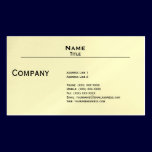Having a separate office space in your home is a winner in more than one way! You cut down commuting time, save money on gas or transport, spend quality time with your family, reduce stress levels, make your little contribution to saving the environment and best of all, reduce your tax payments. Here are some tips on how to make a home office tax deductible.
Qualifying Criteria
As per Internal Revenue Service (IRS) guidelines, people running a home-based business or employees working from home are eligible for tax deductions, provided a separate area is converted as office space. Any expenses which you incur as part of your business or work requirements, including general upkeep and maintenance of the business space, utilities, mortgage repayments, insurance costs and depreciation can be deducted from income assessed for taxes.
The general qualifying criteria and conditions which must be satisfied are listed below:
- Deduction of business expenses on a home office does not depend on ownership status of the property, i.e. owners, renters or lessees, all are eligible for the deduction.
- The home office can be located in any type of constructed property, such as independent houses, apartments or even mobile homes!
- The first qualifying condition is ‘regular and exclusive use’ – the space earmarked for business must be exclusively used for only that purpose. For example, a study or basement space set aside for business must not be used for any other purpose, such as entertainment area or storage space, unless it is business inventory or records.
- If you work as a salaried employee and a significant portion of your work is done in a separate home office, in addition to meeting the two conditions mentioned in (3) and (4), you must be able to prove that, (a) the home office is primarily to facilitate your employer/company’s business; and (b) the space should not be rented or leased to the employer and then you work in that space as an employee.
- If the home office is used mainly for your personal convenience, for example, working mothers who work from their homes in order to provide childcare, cannot claim a tax deduction.
Calculating the Home Office Deductible
- Estimate the percentage of space which is used as a home office as against the total space in your home – either by dividing area of the home office by the total area of the house; or where rooms or sections of the house are of similar or equal dimensions, the number of rooms or sections used for business by the total number of rooms/sections.
- If the home office was in operation only for part of the year, then business expenses incurred only during that part are eligible for deduction.
- Expenses for which deduction can be claimed include property taxes, mortgage insurance premiums, mortgage interest, casualty losses, depreciation, rent, repairs and maintenance charges, utilities and security systems.
Detailed information on how to calculate the deductible amount is available in the publications section of the IRS web site (refer to publication # 587) at irs.gov.
_________________________
see on 8 products




























No comments:
Post a Comment